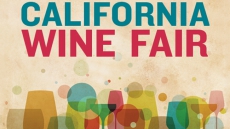Targeting Universities in Authoritarian India
MORE Networking ARTICLES
The 2016 Vancouver Sun Run Entertainment line up announced
Downtown Vancouver | 17/04/2016 - 17/04/2016
The 32nd annual Vancouver Sun Run presented by BlueShore Financial is scheduled for Sunday, April 17th and for the first time in The Sun Run’s history, registrants will receive an exclusive hydrolyte technical running shirt with moisture wicking control. Also new for 2016, every registrant will be able to customize their bib to include their name.
The 2016 Vancouver Sun Run Entertainment line up announced
California Wine Fair

East Building Ballrooms A & B, 999 Canada Place | 25/04/2016 - 25/04/2016
Largest Tour of California Wines comes to Arts Club Theatre Company
California Wine Fair
Ascend Canada proudly recognizes corporate leaders at 3rd Annual Leadership Awards Gala
181 Wellington St W | 04/04/2016 - 04/04/2016
Ascend Canada, the premier organization for members of the PanAsian business community in Canada, will celebrate exceptional individuals at its third annual Leadership Awards Gala on April 4, 2016 at the Ritz-Carlton Hotel in Toronto.
Ascend Canada proudly recognizes corporate leaders at 3rd Annual Leadership Awards Gala
A study in fun: KPU's Surrey Open House is back

12666 72 Ave | 05/03/2016 - 05/03/2016
Canada’s leading polytechnic university will open its doors to future students and families on March 5 from 11 a.m. to 3 p.m.
A study in fun: KPU's Surrey Open House is back
Canada’s Royal Winnipeg Ballet Inspires VPL Public Forum

350 W Georgia St | 09/03/2016 - 09/03/2016
Canada’s Royal Winnipeg Ballet (RWB), in partnership with the Vancouver Public Library, presents Expressions of Reconciliation: A Forum of Truth, Hope, and Understanding, Wednesday March 9, at 7pm at the Central Library, downtown Vancouver.
Canada’s Royal Winnipeg Ballet Inspires VPL Public Forum
One Billion Rising Revolution event in Delta

11489 84 Ave | 12/02/2016 - 12/02/2016
It is estimated that one in three women around the world have experienced physical or sexual viol...
